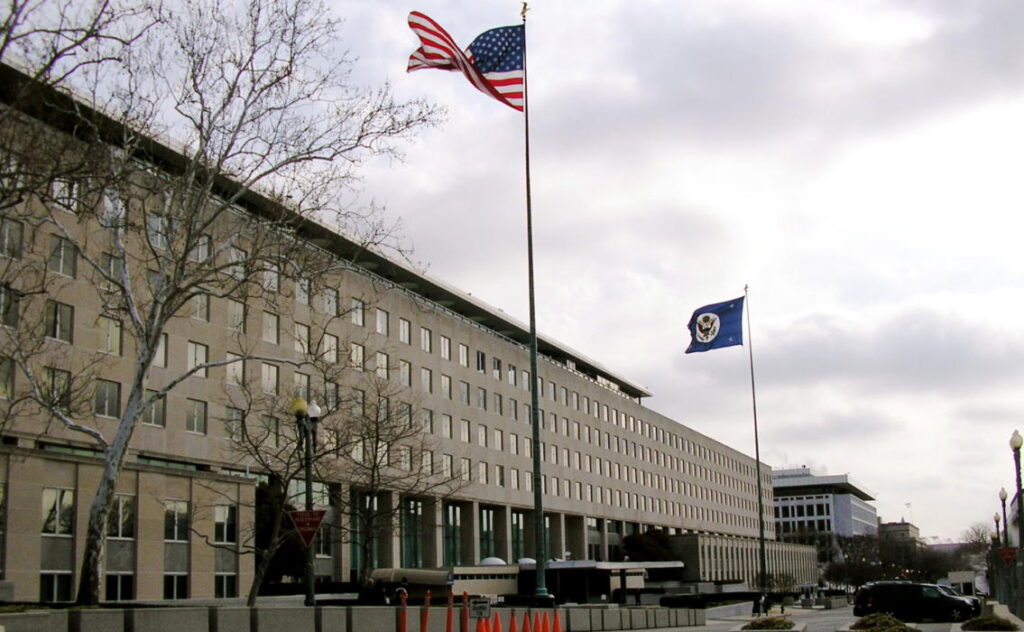.
Moussa Koussa’s defection surprises Libya – and maybe Britain too
(Guardian) March 31, 2011 – After leaving university, Koussa was sent to London to head the People’s Bureau in St James’s Square, London – in effect the country’s ambassador in the UK. The role meant he was in charge of security at all Libyan embassies in northern Europe, and he was known to be involved in buying weapons.
He was also charged by Gaddafi with liquidating what were called – in chilling Libyan officialese – “stray dogs” who betrayed the 1969 revolution.
…
Crucially, it remains unclear whether he was involved, as has often been rumoured, in the Lockerbie bombing in 1988 or in an attack on a French plane over the Sahara the following year.Koussa has denied knowledge of either atrocity, but the suspicions persisted, and were hardly dulled when in 1994 he was appointed head of Libya’s External Security Organisation, during a period in which the regime was constantly being linked to terrorist activity.
His rehabilitation – in diplomatic circles at least – began within days of 11 September, when US demands for intelligence outweighed its queasiness about dealing with the Gaddafi regime.
Koussa is said to have flown to London shortly after the atrocity, bringing with him files about known al-Qaida terrorists; he was also Gaddafi’s special envoy in the negotiations to give compensation to relatives of the 270 passengers and crew killed at Lockerbie.
…
Now part of Whitehall folklore, Koussa was a key figure in the secret meeting at the Travellers Club in Pall Mall – favourite haunt of spies – when the deal was done.Britain’s chief interlocutor at the talks was Sir Mark Allen, a veteran Arabist who was deputy head of MI6. Steve Kappes, now deputy director of the CIA, was part of the circle of trust too.
After flying to and from Libya to lay the ground work for the deal, it was Allen who chaired the critical discussion with Koussa in London on 16 December 2003.
In a private room in the club, over a long lunch, the talks continued until 6pm until an agreement was reached – Libya to abandon its weapons programme, in return for sanctions being lifted.
Within a month, the US and the UK had resumed relations.
Sir Mark, having failed to secure the top job at the Secret Intelligence Service, went on to join BP as a special adviser, helping the company to win huge oil contracts with Gaddafi.
Koussa’s long-standing link with Britain’s intelligence service and the CIA continued, with Libya becoming an ever closer and valued ally in the US-led “war on terror” – a point Gaddafi peevishly reiterates as evidence of bad faith towards him.
Moussa Koussa’s departure to Doha angers Lockerbie campaigners
(Guardian) – Moussa Koussa is ‘a free individual who can travel to and from the UK as he wishes’, the Foreign Office said. Libya’s most high profile defector, foreign minister Moussa Koussa, flew out of the UK on Tuesday to take part in a critical peace conference amid anger from Lockerbie campaigners and accusations of “betrayal” levelled at the British government.
Koussa made his surprise departure to Doha after the Foreign Office said he was “a free individual, who can travel to and from the UK as he wishes”.
He was expected to “offer insights” in advance of the conference on Libya in the Qatari capital, being held with representatives from the Benghazi-based opposition. The UN, Arab League and EU will all be represented, as will France, Italy, Germany, Turkey and others.
But families of the victims of the Lockerbie bombing accused the British government of “betrayal” for allowing the former minister to leave the country.
The Doha conference is being billed as a follow-up by the “contact group” formed after the London conference on Libya last month. Hague is co-hosting it with the Qatari prime minister, Hamed bin Jassem, but Hillary Clinton is staying away, perhaps signalling an attempt by the US to leave the heavy lifting to Europeans and Arabs.
(The Gulf Blog) – Moussa Koussa left the UK for Qatar in April. It was becoming far too difficult for him to stay in the UK given his murderous past. Now in Qatar he has, I am sure, proved exceedingly useful to the Qataris and thus indirectly to the NATO alliance in working out who is who in Libya, what Gaddafi is was likely to be up to and where he was most lilely to flee to. Plus a host of other bits and pieces that only long time close confidant of Gaddafi could know. This was the price for his residency in Qatar. Yet now – on the ball as ever – the BBC doorstepped him after after miraculously `tracking him down’ to the Four Seasons in Doha.
It is likely that there will be a sizable push to bring Koussa to some kind of justice, perhaps in Tripoli, perhaps in the Hague. This will put Qatar in a difficult position, as it will be difficult for Qatar to give up Koussa. Not only would such a notion go against deep-seated notions in this part of the world of hosting a guest (whomever that may be) but Qatar will not want to set a precedent of cow-towing to other powers to hand over someone with whom they have had dealings. Indeed, Qatar sees itself as something of a refuge for various international misfits ranging from one of Saddam Hussein’s wifes to one of Osama Bin Laden’s sons.
- How the Abu Salim Prison Massacre in 1996 Inspired the Revolution in Libya
- CIA, MI6 and Libya’s Role in 21st-Century Espionage
"But I will not let myself be reduced to silence."
